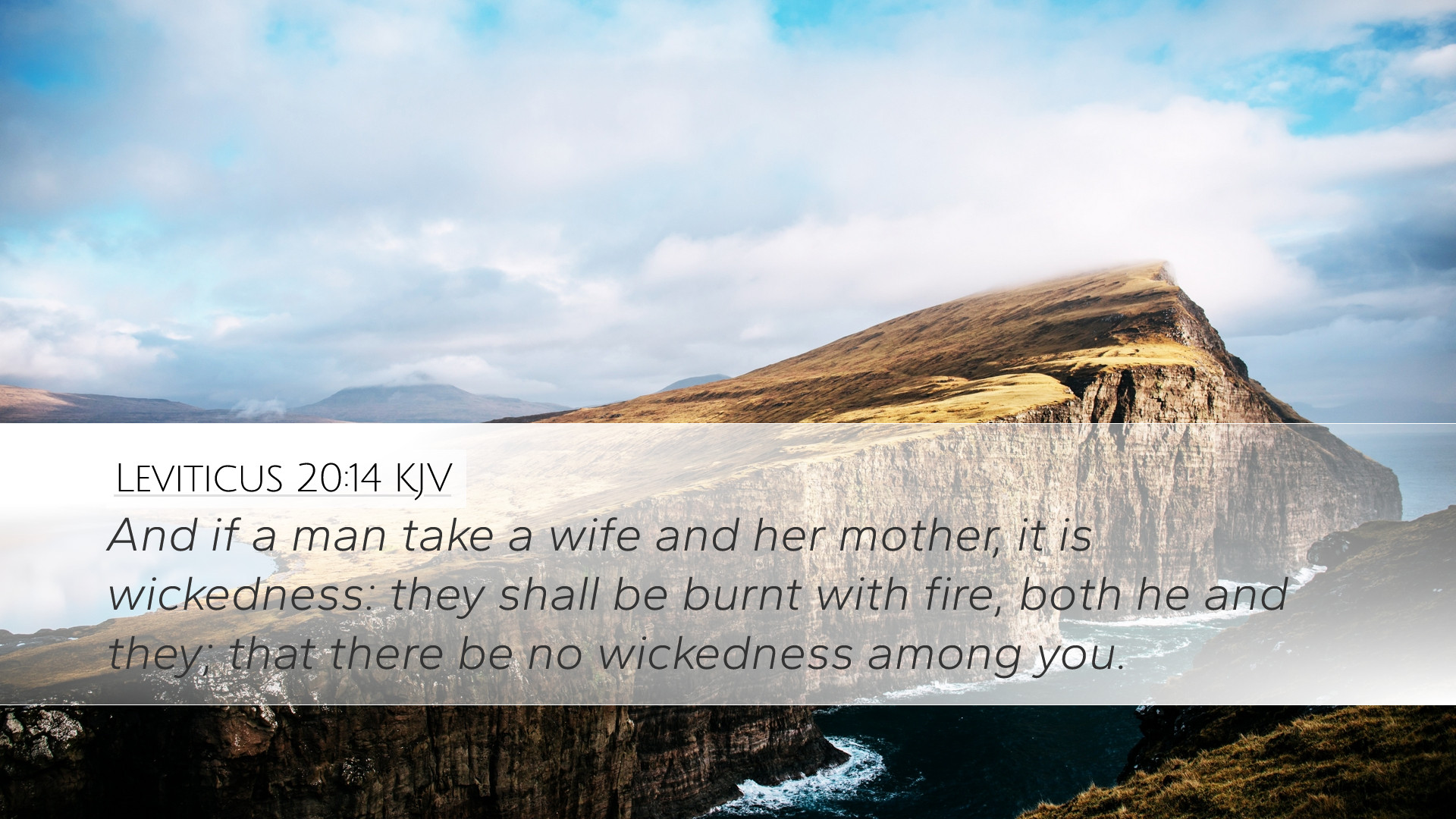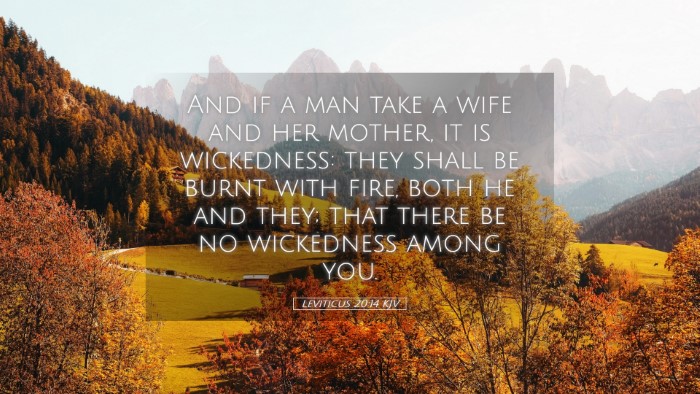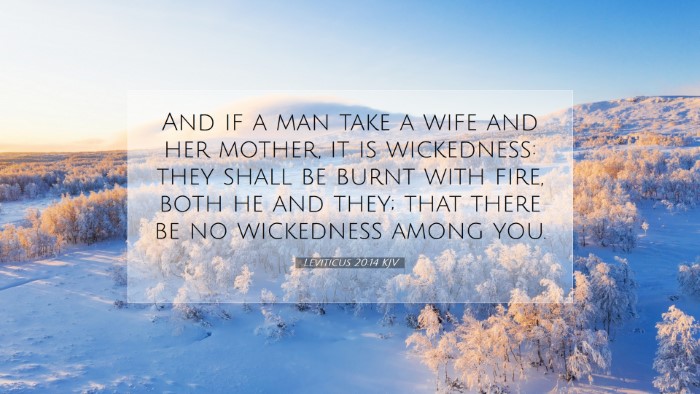Commentary on Leviticus 20:14
Verse Reference: Leviticus 20:14 - "And if a man takes a wife and her mother, it is wickedness: they shall be burned with fire, both he and they; that there be no wickedness among you."
Introduction
The book of Leviticus provides the foundation for understanding the holiness required by God from His people. As a part of the Mosaic Law, Leviticus details various laws and commandments, emphasizing moral and ethical living. Leviticus 20:14 addresses a specific offense that is particularly egregious in the eyes of God, highlighting the seriousness of unlawful relationships within the community of Israel.
Exegesis of Leviticus 20:14
Wickedness Defined: The term "wickedness" in this context (Hebrew: ra) refers to a gross moral offense that violates God’s commandments.
Prohibitions Against Incest: The law explicitly forbids a man from taking both a wife and her mother, indicating both a breach of familial integrity and an affront to the sanctity of marriage.
Judgment and Consequences: The severe punishment prescribed—being "burned with fire"—serves as a deterrent and reinforces the communal imperative to uphold purity among the people of Israel.
Insights from Public Domain Commentaries
-
Matthew Henry's Commentary:
Henry emphasizes that the act of marrying a mother and daughter is a profound breach of both social and spiritual laws, denoting an unbearable level of immorality. He posits that the punishment serves the dual purpose of purification for the community and a grim warning against cultivating relationships that go against divine order.
-
Albert Barnes' Notes:
Barnes articulates that the law served as a safeguard for family unity and the sanctity of the marital bond. He points out that such practices were prevalent in surrounding nations, thus God’s commandments set Israel apart, forming a distinct identity rooted in holiness. The consequences of breaking this commandment were intended to instill fear of divine justice and promote adherence among the people.
-
Adam Clarke's Commentary:
Clarke reflects on the severity of the punishment, discussing the idea that the death penalty, particularly through burning, is symbolically representative of removing the vile from amongst the people. His commentary indicates a strong correlation between these laws and the theme of holiness, asserting that God desires His people to reflect His character through their conduct and relationships.
Theological Implications
This verse poses significant theological implications regarding God's holiness and the moral fabric of society. The harshness of the law might raise questions about God's nature, yet it reinforces the idea that God is deeply concerned with every aspect of human relationships. By enacting severe penalties, God conveys the seriousness with which He views moral corruption and the need for His people to uphold a standard that reflects His righteous character.
Furthermore, these laws point to the broader spiritual reality of sin, suggesting that the unity of the family is to be cherished and maintained. Breaking such laws not only injures community cohesion but also directly offends the holiness of God.
Practical Applications
For contemporary readers—including pastors, students, and scholars—Leviticus 20:14 invites reflection on the nature of sin and its repercussions within communities. It calls for a restoration of family integrity and marital sanctity, which are essential to healthy interpersonal relationships.
- Emphasizing Holiness: Understanding the holiness of God should encourage contemporary believers to evaluate their relationships and practices seriously. It serves as a call to personal and communal purity.
- Promoting Accountability: The verse suggests the importance of accountability within the body of Christ. Encouraging one another to adhere to godly standards can protect the church from moral decline.
- Cultivating Healthy Relationships: Believers should actively pursue relationships that reflect Christ’s love and integrity, focusing on God's design for family and marriage.
Conclusion
Leviticus 20:14 is a stark reminder of God's expectations for His people regarding moral purity. Through the teachings of public domain commentaries, we discern that God's laws serve a vital function in guiding spiritual and moral behavior. As believers, grasping the weight of such imperatives encourages a life that not only seeks to avoid sin but actively embraces a lifestyle of holiness that glorifies God.


